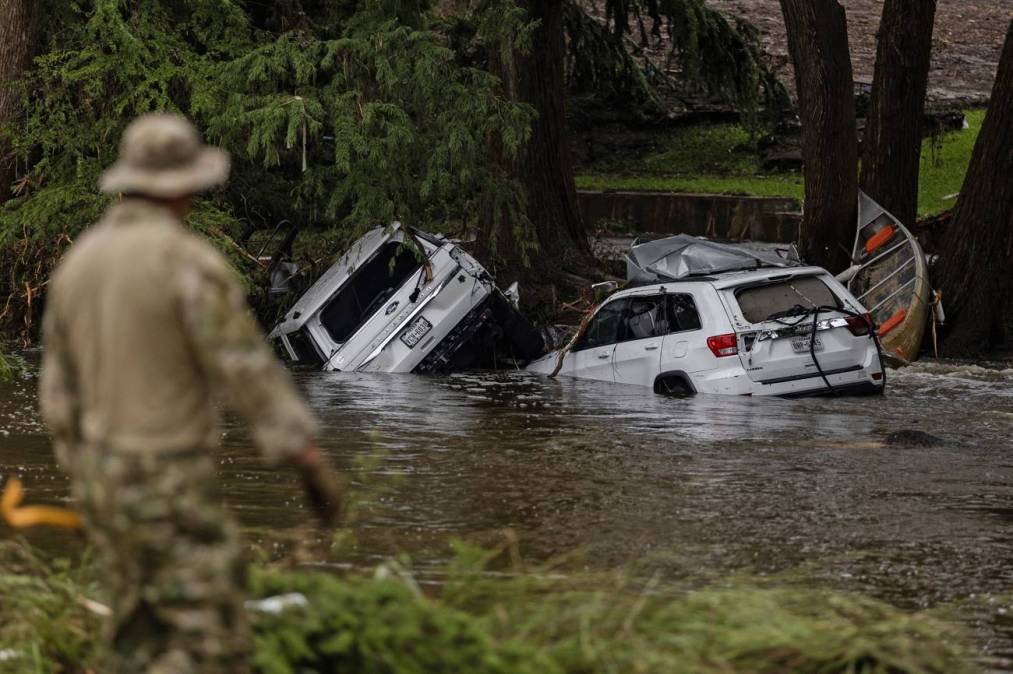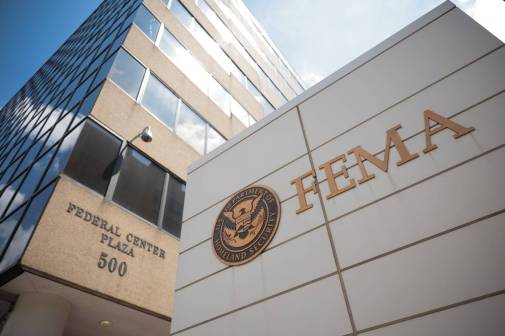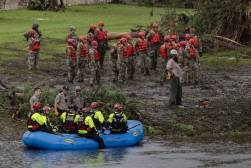Did Trump cuts play role in Central Texas flood deaths?

Nearly 90 people have been confirmed dead in Central Texas, where extreme rainfall over the weekend caused catastrophic flooding along the Guadalupe River. The torrential downpour, which started Friday, raised the river by more than 26 feet, according to some reports, swamping the banks of many communities in the region known as “flash flood alley.”
While more rain is expected Monday, potentially disrupting the search for survivors, local officials are facing questions over the accuracy of weather forecasts and promptness of warning systems in the flood-prone area. There are reports that residents did not receive emergency alerts or evacuation orders in time, putting lives at risk, like those at Camp Mystic, an all-girls Christian summer camp along the river that lost 27 of its campers and staff members to the floodwaters, according to the New York Times.
“Why didn’t we evacuate? Well, evacuation is a delicate balance, because if you evacuate too late, you then risk putting buses, or cars, or vehicles or campers on roads, into low water areas, trying to get them out, which then can make it even more challenging,” Kerrville City Manager Dalton Rice told reporters at a press conference on Monday.
Erica Grow Cei, a spokesperson for the National Weather Service, the federal agency responsible for providing weather forecasts, warnings and other weather-related information, told StateScoop that its offices in Austin and San Antonio issued a Flood Watch to the region in the early afternoon on July 3 and flash flood warnings were issued on Friday morning, “giving preliminary lead times of more than three hours before warning criteria were met.”
“The National Weather Service is heartbroken by the tragic loss of life in Kerr County,” Cei wrote in an emailed statement. “The National Weather Service remains committed to our mission to serve the American public through our forecasts and decision support services.”
She added that flash flood warnings with the tags “considerable” or “catastrophic” indicate high-damage threats and will automatically trigger Wireless Emergency Alerts on enabled mobile devices, ensuring only the most life-threatening flash flood events prompt urgent public notifications. All alerts are issued over the National Oceanic Atmospheric Administration’s Weather Radio, she said.
Sen. Chuck Schumer on Monday sent a letter to the Commerce Department’s acting inspector general, Duane Townsend, requesting an inquiry into whether the Trump administration’s cuts to the National Weather Service contributed to the flood’s devastation in Texas. In particular, the letter asks whether it failed to accurately predict the severity of the storm or issue emergency notifications in time. Since January, more than 1,000 employees at NOAA have been laid off as part of the Trump administration’s broader effort to downsize the federal government.
“The roles left unfulfilled are not marginal, they’re critical,” Schumer wrote. “These are the experts responsible for modeling storm impacts, monitoring rising water levels, issuing flood warnings, and coordinating directly with local emergency managers about when to warn the public and issue evacuation orders. To put it plainly: they help save lives.”
The lack of warning in Texas is reminiscent of Hawaii’s outdoor siren warning system, the largest in the world, which was not activated during the 2023 Lahaina fires, causing delays in critical evacuation zones that resulted in immense property damage and more than 100 people dead. Some experts said this was due to mechanical failure or because cellular service wasn’t working.
In April, the Texas state legislature failed to pass a bill that would have created a new government council to establish an emergency response plan and administer a grant to help counties build new emergency communication infrastructure. The bill also called for the plan to include the use of outdoor warning sirens, like those used for tornadoes, as well as develop new emergency alert systems. The measure has been referred to the Senate Finance Committee.






